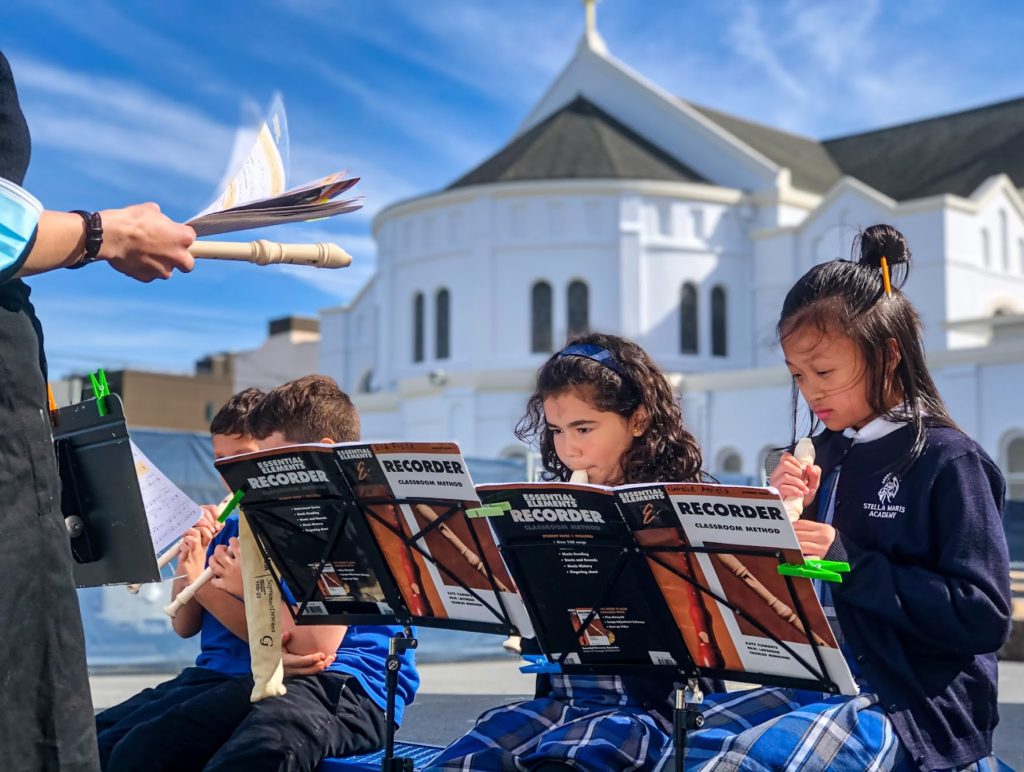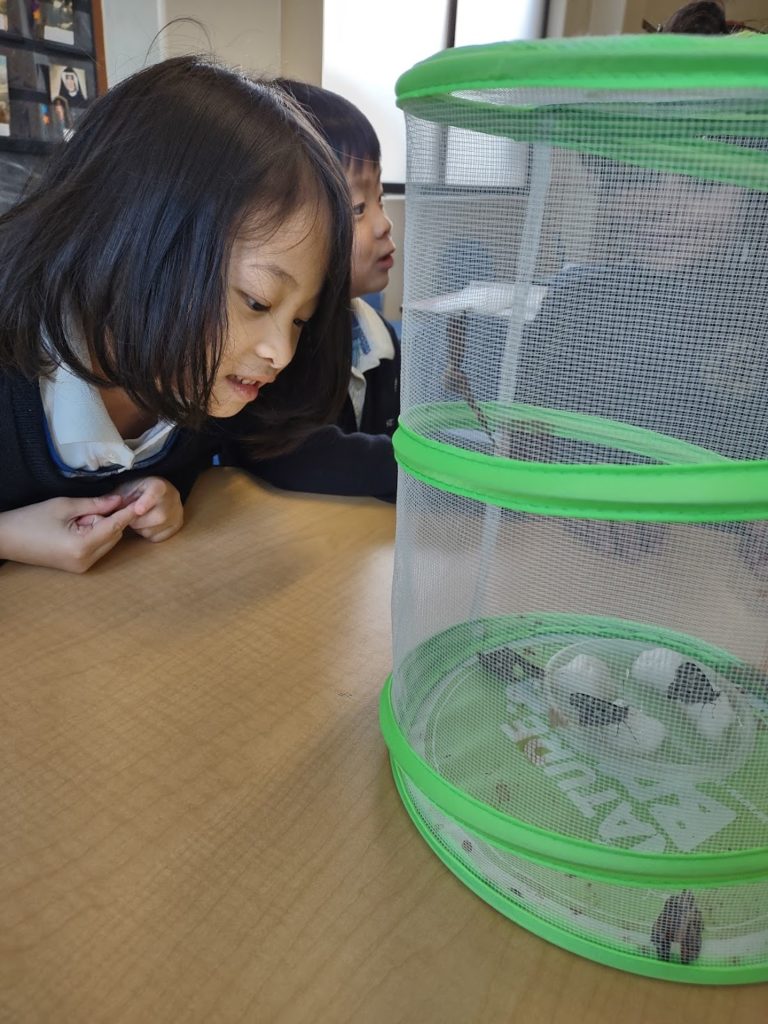
At this early stage of development children find joy in encountering their world and acquiring the vocabulary to speak about and share it with others. They also enjoy movement in song and dance and as they learn to read stories begin to cultivate their moral imagination. At this stage the classical curriculum focuses on cultivating that sense of wonder and developing a “grammar” of all the disciplines.

As students progress developmentally into the logic stage they start to become excited about questions of “why”. They begin to analyze and classify their experiences both linguistically and mathematically and explore how different things in the world fit together. At this stage the classical curriculum begins to focus upon developing the students reasoning and critical questioning ability. As authentic education is only possible when set free from what Pope Benedict XVI referred to as the “dictatorship of relativism”, we focus on training the mind to think orderly in all subjects and begin to expose our students to the full riches of Western Civilization

As students progress into the third and final stage of development they become more interested in how others perceive them, and how their words and actions can be used to impact and change the world around them. At this stage the classical curriculum students begin to learn how to structure their thinking and speaking in such a way that it can be consumed effectively by others. As great writing often begins with a love of great models of literature they are further immersed in the “great books”, as well as the disciplines for higher studies like advanced mathematics, music and the sciences.

Beauty is a critical pathway for young hearts in our contemporary culture to find goodness and truth. As funding for the arts and humanities are reduced in some schools students lose essential training in the physical and emotional foundations for academic growth and character development.

Classical education is not opposed to technology. Technology is a wonderful tool when it is used like Steve Jobs spoke of, as a “bicycle for the mind”. We train our students to be technologically capable, and strive to give them the critical thinking skills which will enable them to succeed in all areas of life.

St. Thomas Aquinas defined wisdom as the ability to “order things rightly”. The study of Latin helps train our mind to do just that. As a language it is so rationally structured and precise that students of Latin develop precision in higher order thinking. This habitual structuring of the mind helps students to make sense of truth found in all areas of study.

The Latin language is the basis for much of both Christian and non-Christian civilization and culture. Law, medicine and many other disciplines are shaped by Latin concepts and ideas. More particularly, Christian worship, theological studies and moral formation are greatly aided by studying what remains the official language of the Church to this day.

When one masters the Latin language they have an excellent basis for many other languages. For example, about 80% of the words in the “Romance Languages” (Spanish, French, Portuguese and Romanian) find their origin in Latin. In this sense for parents interested in providing children with an education in a more “practical language” like Spanish, the study of Latin provides a stupendous foundation.
So much of modern education is fragmented. What does history have to do with science or what does art/music have to do with mathematics? At Stella Maris Academy we believe that all truth, goodness and beauty form an organic unity on account of their origin in the Triune God. In this regard we believe that theology shows us how all things fit together and reveals the deep wonder which we find in the structure of the created order.
Our faith animates our inquiry into the wonder of the world and causes us to focus not merely upon the acquisition of knowledge, but forming the whole person in virtue. In this sense we strive to not only to fill our students minds with truth but to shape them in the habits which enable them to choose the virtuous life. We want our students hearts to be filled with the supernatural love of Christ and their neighbors such that it animates all of their lives on the road to eternal life.
As the Eucharist is the source and summit of the Christian life (CCC 1324) frequent and faithful participation in the Sacramental life is particularly encouraged and emphasized.
We teach theology out of the Bible, the Catechism of the Catholic Church and other faithful expressions of the deposit of the faith. Students cycle through the four pillars of the Catechism (Creed, Sacraments, Morality, and Prayer) at a level appropriate to their development.
We work hard to ensure that our faculty is not only talented and dynamic, but joyfully living their faith and desirous of sharing that with their students.
Stella Maris Academy, mindful of its mission to be a witness to the love of Christ for all, admits students of any race, color, and national and/or ethnic origin to all the rights, privileges, programs and activities generally accorded or made available to students at this school. Stella Maris Academy does not unlawfully discriminate on the basis of race, color, national and/or ethnic origin, age, gender or disability in administration of educational policies, admissions policies, scholarship and loan programs, and athletic and other school-administered programs.
2022 © Stella Maris Academy. All Rights Reserved.
Stella Maris Academy, mindful of its mission to be a witness to the love of Christ for all, admits students of any race, color, and national and/or ethnic origin to all the rights, privileges, programs and activities generally accorded or made available to students at this school. Stella Maris Academy does not unlawfully discriminate on the basis of race, color, national and/or ethnic origin, age, gender or disability in administration of educational policies, admissions policies, scholarship and loan programs, and athletic and other school-administered programs.
2022 © Stella Maris Academy. All Rights Reserved.